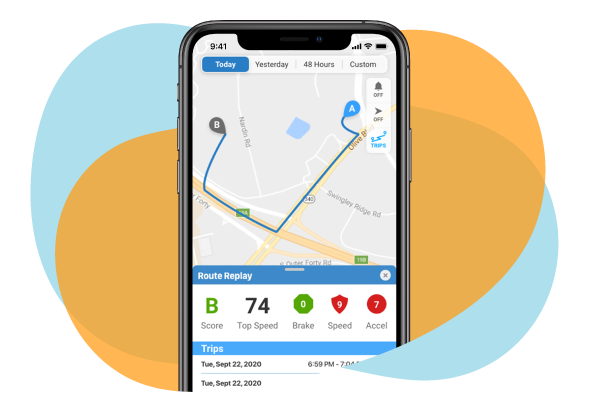
By Dave Holland / Posted December 5, 2016
Preventing Road Rage in Teens
Emotions can run high on the road and cause drivers to make poor and dangerous decisions. Recent data from the National Highway Traffic Safety Administration (NHTSA) revealed that 94 percent of all traffic accidents are caused by driver error. Of those accidents, 33 percent could be linked to behaviors typically assigned to road rage, such as illegal maneuvering or misjudging the intent of another driver. Most drivers wouldn’t argue with these numbers; half of drivers who shared road rage stories admitted to engaging in aggressive behavior in response. According to safemotorist.com, this is a deadly problem, causing as many as 66 percent of recent traffic fatalities.
Do teens already have road rage?
Data suggests that road rage can be just as dangerous for teens, as 40 percent of teenagers report feeling anger and 1 in 5 teenagers has an anger management issue. Teens have less experience managing emotions than adults do and often don’t know how to control strong feelings. When a teen does not know how to control anger, they can easily let anger control their actions in the car. This can cause impulsive decisions that result in injury to themselves or others.
Causes of teen road rage
Some teen road rage is simply a result of immaturity and impulsiveness. It is important to make sure that your teen is ready emotionally before letting them get behind the wheel. However, there are factors that can contribute to road rage. Alcohol can magnify emotions, giving you one more reason to talk to your teens about why they shouldn’t drink and drive. Peer pressure can also be a factor. A study by the 2011 Journal of Adolescent Health found that peer pressure increases the risk of an accident, especially with male teens. Fatigue can also amplify road rage. If your teen is stretching their days thin with school, extra-curricular activities, work, and homework, you might want to make sure they are getting enough sleep before driving.
Helping your teen manage anger
Sometimes teens just need some help identifying ways to manage emotions with healthier responses. Here are some tips that you can give to your teen to help them prevent a situation from getting out of control:
- Resist the urge to get revenge or punish an aggressive driver. It only escalates the situation.
- If someone is tailgating you, simply move over. Don’t see it as an argument.
- Use an “I’m sorry” gesture (e.g. wave) to attempt to defuse the situation.
- Plan ahead and leave early; allow time for delays during your journey.
- Consider whether you’ve done something to annoy the other driver and adjust your driving accordingly.
- Listen to music you enjoy.
- Use your horn sparingly.
- Avoid eye contact with angry drivers and give them plenty of room.
You know your teen best, so there are probably specific habits that you can talk to them about that will help them respond appropriately. This is also a good time to talk about sharing the road with other drivers. A little guidance from you about managing emotions can build habits that will protect them every time they drive.

- Installs in seconds
- Rates driver performance
- Monitors safe driving behaviors
- Shows location in real time
- Generates alerts for speeding and more
- Signals unauthorized usage

Next Post
Teaching Your Teen to be Polite on the Road
December 21, 2016Driver training usually begins with learning the law. The test for the learner’s permit is all about laws, and this is the focus of most parents when…
Previous Post
Preparing for Emergencies: What to Do If Stranded
November 21, 2016Every driver dreads finding themselves on the side of the road with a car that has broken down. For teen drivers who are still learning the rules of…


